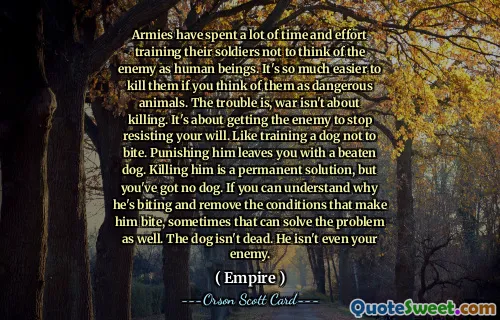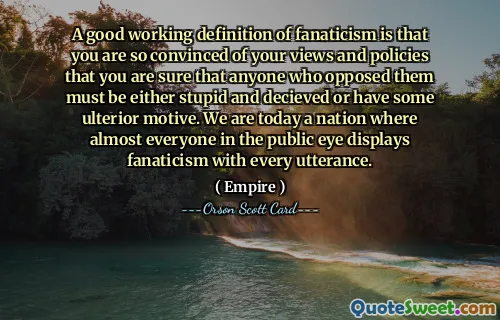
Armies have spent a lot of time and effort training their soldiers not to think of the enemy as human beings. It's so much easier to kill them if you think of them as dangerous animals. The trouble is, war isn't about killing. It's about getting the enemy to stop resisting your will. Like training a dog not to bite. Punishing him leaves you with a beaten dog. Killing him is a permanent solution, but you've got no dog. If you can understand why he's biting and remove the conditions that make him bite, sometimes that can solve the problem as well. The dog isn't dead. He isn't even your enemy.
In "Empire," author Orson Scott Card explores the psychological tactics employed by armies to dehumanize the enemy. This mindset simplifies the act of killing, as viewing opponents as mere animals makes it easier to justify violence against them. However, Card emphasizes that war is not solely about inflicting death; it’s fundamentally about overcoming resistance and imposing one's will. Treating the enemy as a controlled entity rather than an adversary can lead to more effective outcomes.
Card uses the metaphor of training a dog to illustrate that punishing or killing the enemy may not yield beneficial results. Instead, understanding the underlying reasons for their hostility and addressing those grievances can lead to a more peaceful resolution. By focusing on what drives opposition, one can potentially transform enemies into collaborators or neutral parties, thus avoiding the cycle of violence that often escalates conflict.











